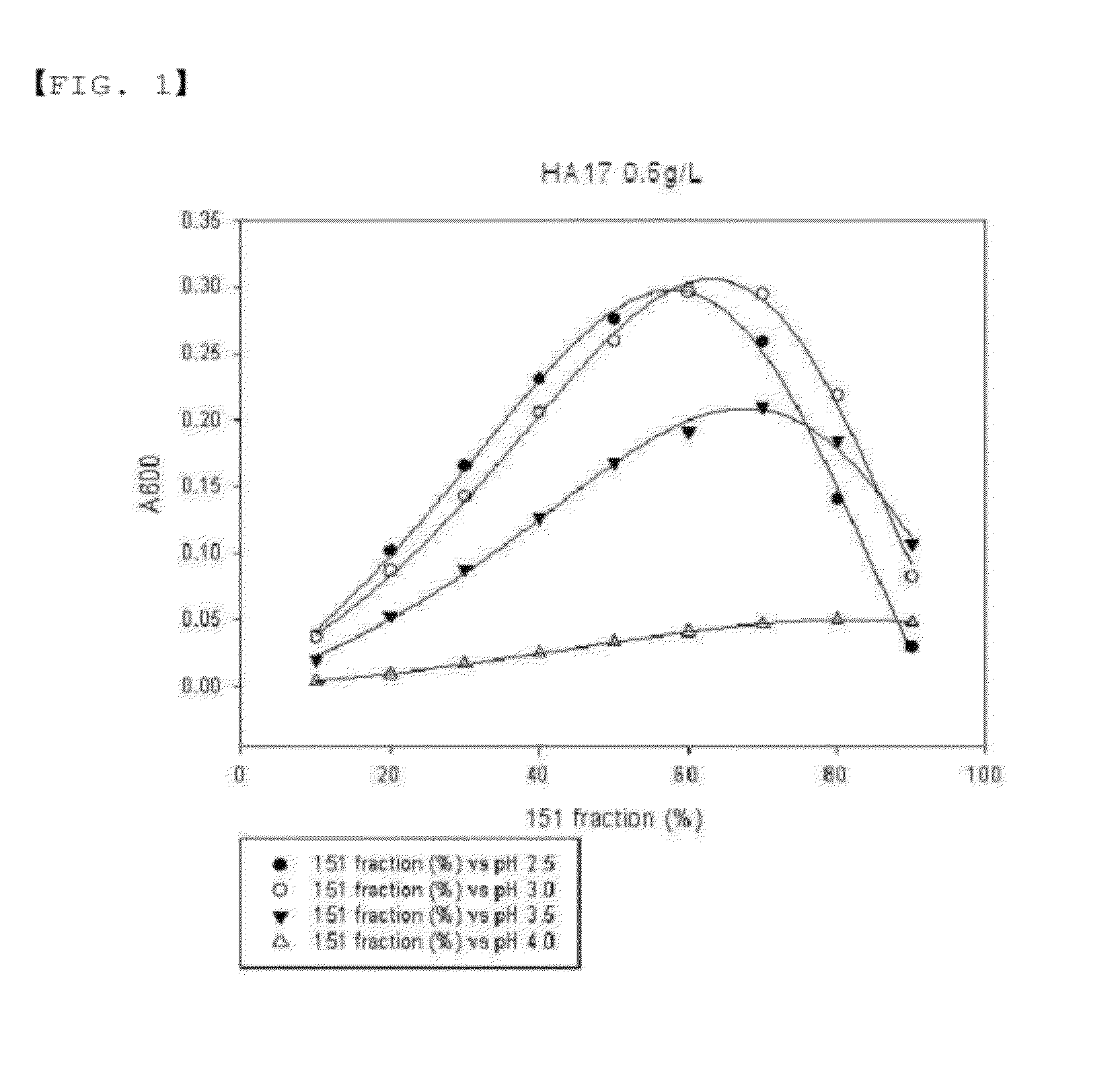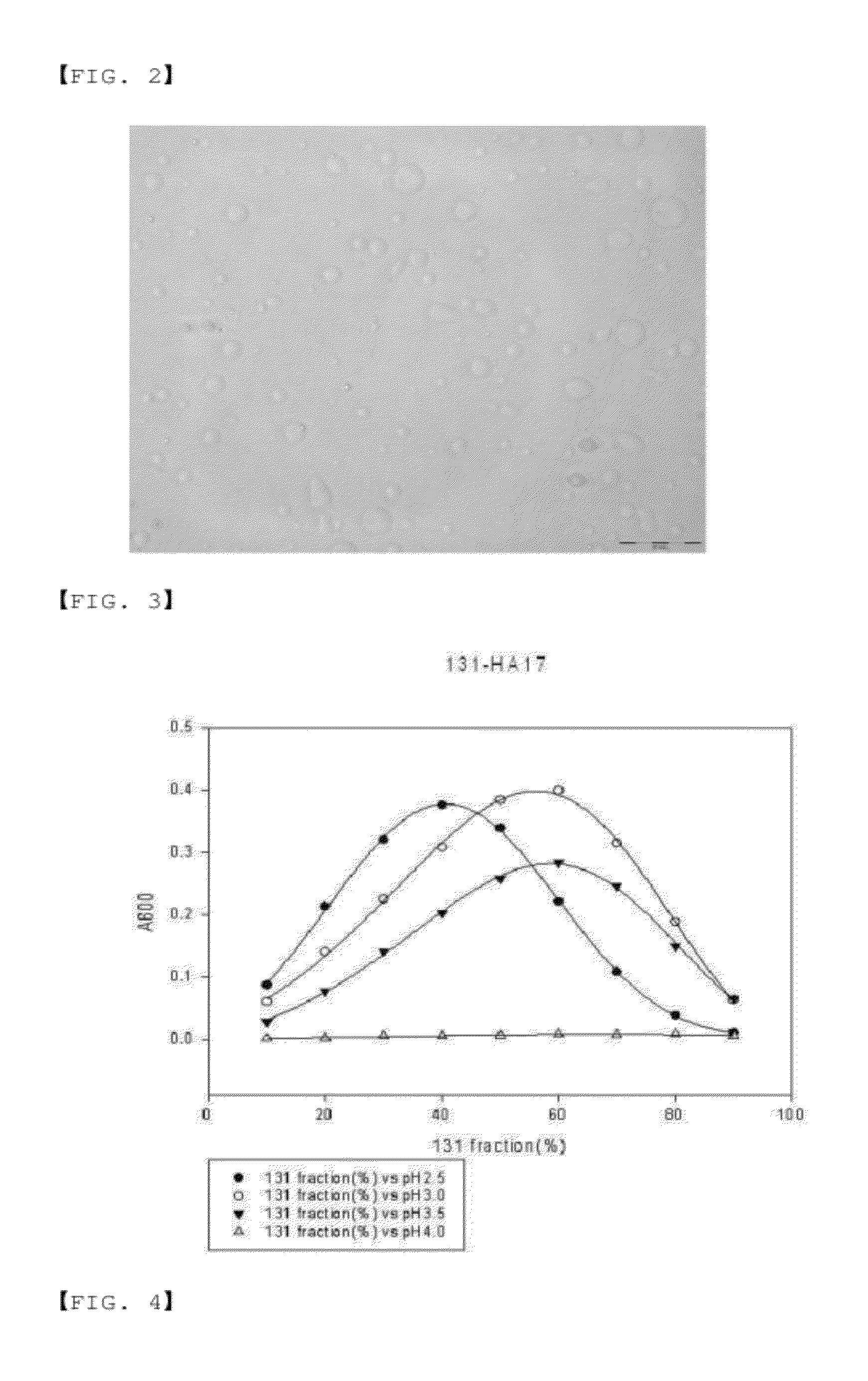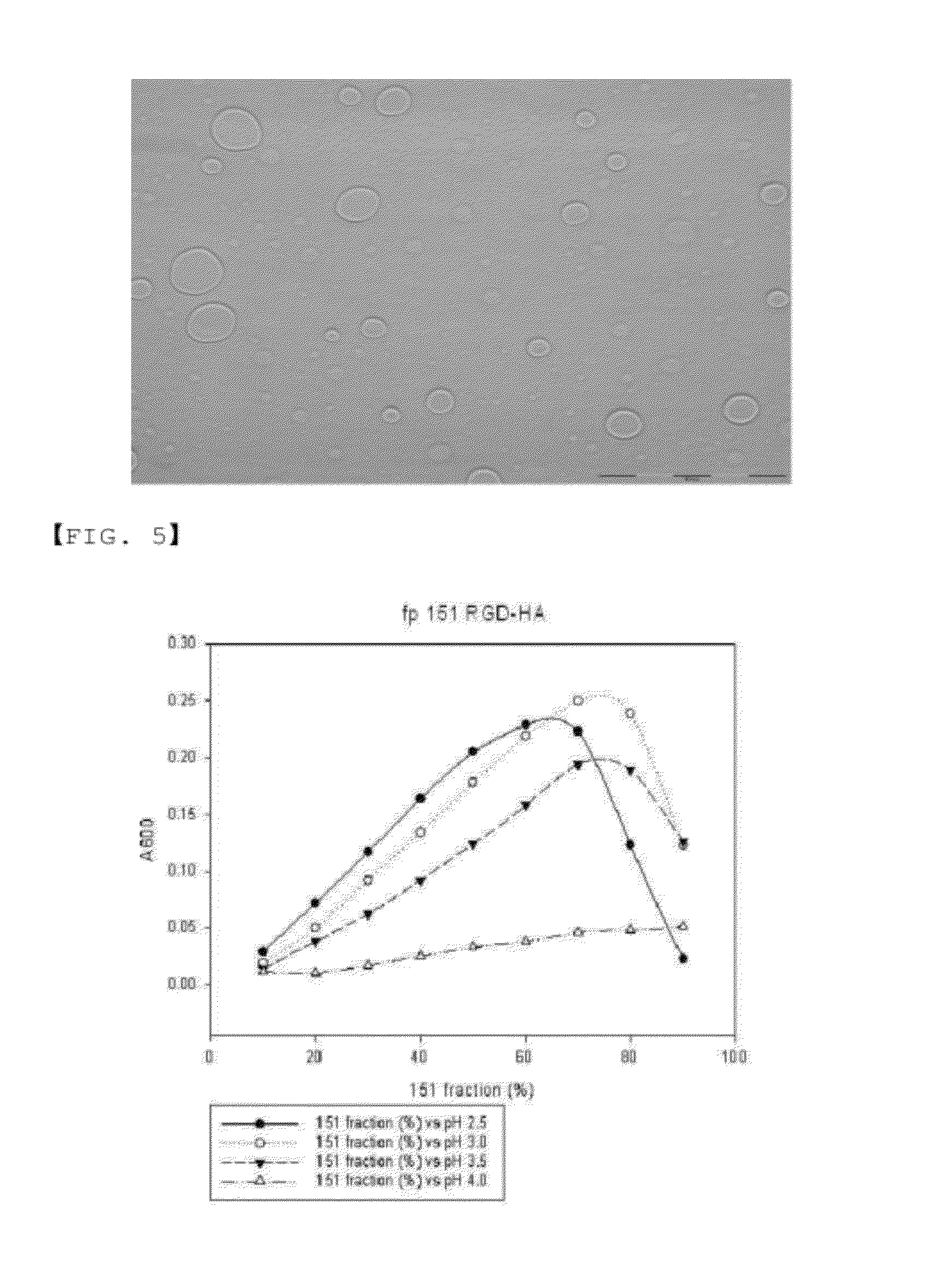Coacervate having an ionic polymer mixed with the adhesive protein of a mussel or of a species of the variome thereof
- Summary
- Abstract
- Description
- Claims
- Application Information
AI Technical Summary
Benefits of technology
Problems solved by technology
Method used
Image
Examples
reference example 1
Preparation of Mussel Adhesive Protein
[0130] Preparation of Mussel Adhesive Protein, fp-151
[0131]A mussel adhesive protein, fp-151 was prepared as follows. An fp-1 mutant consisting of six repeats of decapeptide was synthesized, in order to express the decapeptide in E. coli, in which the decapeptide consists of 10 amino acids occurring 80 times in a natural mussel adhesive protein fp-1. The Mgfp-5 gene (Genbank No. AAS00463 or AY521220) was inserted between two fp-1 mutants, and expressed in E. coli to produce fp-151 (D. S. Hwang et. al., Biomaterials 28, 3560-3568, 2007).
[0132]Specifically, the fp-1 mutant (hereinafter, referred to as 6xAKPSYPPTYK) consisting of six repeats of AKPSYPPTYK represented by SEQ ID NO. 4 in the amino acid sequence of fp-1 (Genbank No. Q27409 or 523760) was prepared, and 6xAKPSYPPTYK was linked at the N-terminus of Mgfp-5, and 6xAKPSYPPTYK was linked at the C-terminus of Mgfp-5 so as to prepare fp-151 of SEQ ID NO. 1.
[0133] Preparation of Mussel Adhesive...
example 1
[0140]Coacervate formation using mussel adhesive protein Coacervate is a colloid produced by mixing an anionic polymer electrolyte and a cationic polymer electrolyte at a particular ratio under particular pH condition. When a coacervate is formed, absorbance of a solution increases. Thus, absorbance is usually measured to examine whether coacervation occurs (V. Ducel et. al., Colloids and Surfaces a-Physicochemical and Engineering Aspects, 232, 239-247, 2004). In the following Examples, each of the mussel adhesive proteins prepared in Reference Examples is mixed with an anionic polymer electrolyte, and then it is examined whether coacervation occurs.
[0141] Coacervate Formation Using Mussel Adhesive Protein fp-151 and Hyaluronic Acid (17 kDa)
[0142]It was examined whether coacervates were formed by mixing the mussel adhesive protein fp-151 prepared in with an anionic polymer electrolyte, hyaluronic acid.
[0143]Specifically, hyaluronic acid (Lifcore Biomedical; Minnesota, USA) having a...
example 2
Microencapsulation Potential of Coacervate
[0172] Microencapsulation Potential of Coacervate Formed by Mussel Adhesive Protein fp-151 and Hyaluronic Acid (35 kDa)
[0173]10 g / L of fp-151 was dissolved in 100 mM acetate buffer, of which pH was adjusted with sodium hydroxide to pH 3.8, and then red pepper seed oil was added thereto at a volume of 1%, based on the final volume. For emulsification, the mixture was stirred for 10 minutes. After stirring, hyaluronic acid (35 kDa) was added to the emulsion of red pepper seed oil at a weight ratio of fp-151 to hyaluronic acid of 8:2.
[0174]Thereafter, for evaluation of microencapsulation potential, fluorescence emission of red pepper seed oil was analyzed by fluorescence microscopy (Olympus), and the results are shown in FIG. 18. It was also examined whether the microcapsules were maintained for at least 8 days, and the results are shown in FIG. 19.
[0175]As shown in FIGS. 18 and 19, it can be seen that the coacervates formed by the mussel adhes...
PUM
| Property | Measurement | Unit |
|---|---|---|
| Fraction | aaaaa | aaaaa |
| Fraction | aaaaa | aaaaa |
| Acidity | aaaaa | aaaaa |
Abstract
Description
Claims
Application Information
 Login to View More
Login to View More - R&D
- Intellectual Property
- Life Sciences
- Materials
- Tech Scout
- Unparalleled Data Quality
- Higher Quality Content
- 60% Fewer Hallucinations
Browse by: Latest US Patents, China's latest patents, Technical Efficacy Thesaurus, Application Domain, Technology Topic, Popular Technical Reports.
© 2025 PatSnap. All rights reserved.Legal|Privacy policy|Modern Slavery Act Transparency Statement|Sitemap|About US| Contact US: help@patsnap.com



